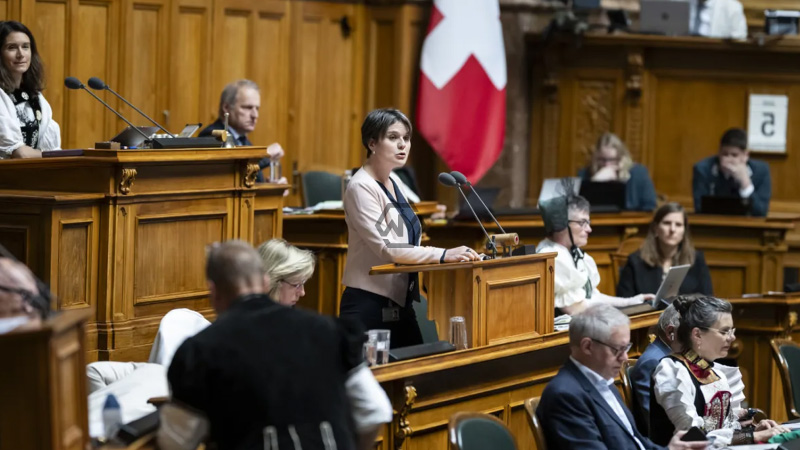- Switzerland’s summer session ends, paving the way for heated referendums and policy debates.
- New EU treaties, the e-ID vote, and broadcasting fees dominate national discourse.
- A natural disaster briefly united parliament, but divisions quickly returned.
Switzerland’s traditionally calm political landscape is shifting. The recent summer session of parliament closed with a flurry of contentious debates, marking an end to nearly two years of relative political dormancy.
Meanwhile, the government’s release of long-negotiated EU treaties sparked renewed discussions about sovereignty versus market access. Switzerland’s complex relationship with the European Union is again under scrutiny, with the next few years likely to be defined by this ongoing tension.
From Glacier Crisis to Digital Identity: Swiss Politics Enter a Defining Era
The collapse of a glacier in Blatten cast a somber tone over the summer session‘s opening. Although not on the agenda, the disaster unified lawmakers across party lines in a rare show of solidarity. For a brief moment, politics took a backseat to national recovery. However, once the immediate crisis passed, political parties quickly returned to using the event to underscore their own policy positions, signaling the end of unity and the start of intensified debates.
The proposed halving of the broadcasting fee, known as the SBC initiative, was particularly divisive. While parliament ultimately rejected the motion, its potential to affect household finances and national media has made it a lightning rod for public opinion. The issue will now move to the Senate and is scheduled for a public vote in 2026, ensuring its place as a central theme in future political campaigns.
Another flashpoint is the push for e-collecting, which would allow citizens to digitally sign initiatives and referenda petitions using the e-ID system. While supported by a cross-party alliance aiming to modernize direct democracy and reduce fraud, opponents fear it may undermine the sanctity of traditional Swiss civic participation. This new process is especially relevant to the Swiss diaspora, for whom distance has historically limited political involvement.
The resignation of Thierry Burkart, leader of the Radical-Liberal Party, added to the political tremors. As the party grapples with internal divisions over European integration and its broader identity, it faces mounting pressure from both the rising Swiss People’s Party on the right and growing public skepticism toward economic liberalism. The choice of a new leader will be pivotal in shaping the party’s stance on upcoming referendums and international relations.
Switzerland’s political slumber is officially over. As the nation moves toward major referendums and debates over identity, sovereignty, and modernization, voters are set to play a decisive role in shaping the country’s next chapter.
“In politics, nothing happens by accident. If it happens, you can bet it was planned that way.” — Franklin D. Roosevelt



